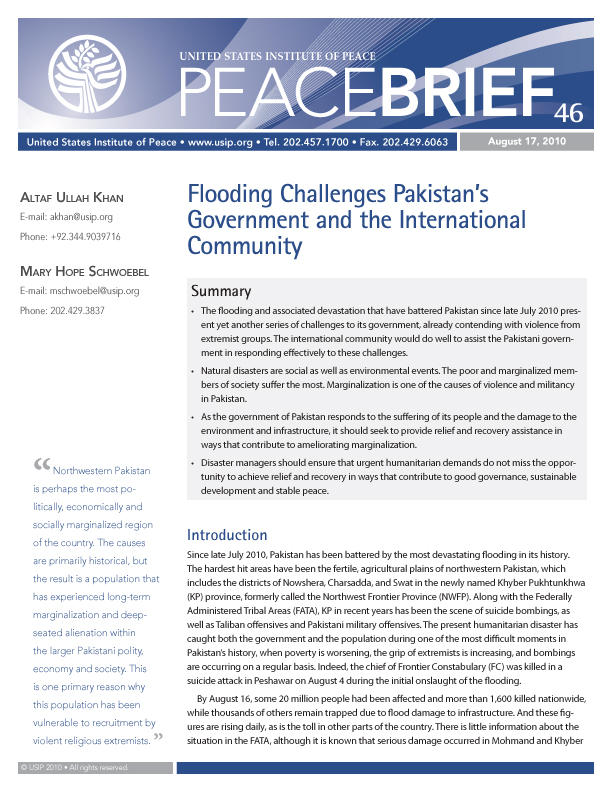Flooding Challenges Pakistan's Government and the International Community
The flooding and associated devastation that have battered Pakistan since late July 2010 present yet another series of challenges to its government, already contending with violence from extremist groups. The international community would do well to assist the Pakistani government in responding effectively to these challenges.

Summary
- The flooding and associated devastation that have battered Pakistan since late July 2010 present yet another series of challenges to its government, already contending with violence from extremist groups. The international community would do well to assist the Pakistani government in responding effectively to these challenges.
- Natural disasters are social as well as environmental events. The poor and marginalized members of society suffer the most. Marginalization is one of the root causes of violence and militancy in Pakistan.
- As the government of Pakistan responds to the suffering of its people and the damage to the environment and infrastructure, it should seek to provide relief and recovery assistance in ways that contribute to ameliorating marginalization.
- Disaster managers should ensure that urgent humanitarian demands do not miss the opportunity to achieve relief and recovery in ways that contribute to good governance, sustainable development and stable peace.
About this Brief
This brief is a result of interviews conducted by Altaf Ullah Khan, professor of Journalism and Mass Communications at Peshawar University and USIP consultant, in Peshawar from July 28 to August 13 about conditions and emergency operations in northwestern Pakistan. Mary Hope Schwoebel is a senior program officer at USIP who leads a cross-border dialogue initiative in the border regions of Afghanistan and Pakistan.



